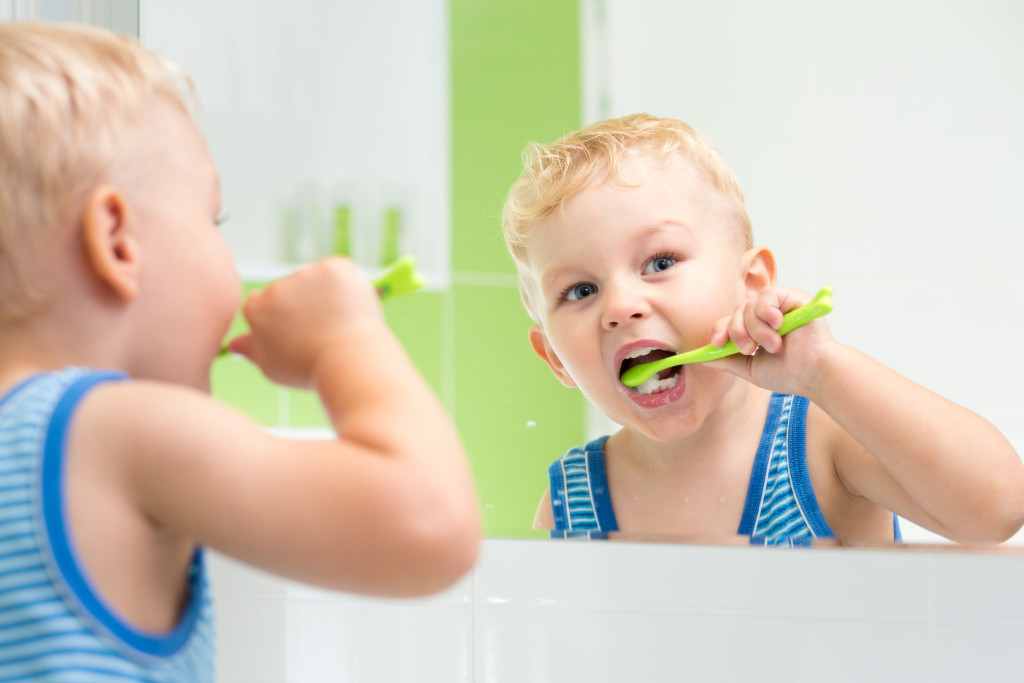When we teach kids to take care of their bodies, we should be talking about more than just eating healthy and being careful when doing physical activities. They should also understand the importance of proper hygiene habits while they are still young.
The earlier they build a good routine, the more capable they are of avoiding sickness and building confidence in themselves. Good hygiene is also a show of respect to the people they interact with, whether family members or friends and teachers from school and other places.
Since good discipline in personal care is not an automatic process, these are some great ways to assist them as they build their own routines.
Provide Instructions and Demonstrations
Telling kids to do something is often not enough. Give them some guidance on how to take care of themselves and be a good example.
1. Instill the importance of oral hygiene.
It is easy for kids to think that the only aspect of dental care they should pay attention to is keeping their teeth clean. Teach kids to brush their tongue, the roof of their mouth, and the insides of their cheeks, too.
Kids should also start flossing as soon as they grow teeth. Show them the proper way to floss their teeth because flossing is just as important as brushing.
Having to use orthodontic devices could change kids’ dental routines. Speak with your child’s dentist about the proper methods for cleaning teeth with appliances attached and assist your child in avoiding bad breath.
2. Show proper handwashing methods.
The COVID-19 pandemic has shown us just how important washing our hands really is. Teach your children that they should not only wash their hands when they are visibly dirty. There are many other times they should be washing their hands, such as after playing outside, using the restroom, and coughing or sneezing.
Telling them to wash their hands for at least 20 seconds will confuse them. Use a song that they can follow while washing hands. Choose one that they like, too, to add a layer of enjoyment when they do the activity.
Along with this, instruct them to be careful about the things they touch and about touching other people or surfaces with dirty hands.

3. Give a rundown of bathing basics.
Bathing is one activity that you don’t usually hear many kids get excited about. It just gets in the way of the fun! Not to mention that kids would much rather do anything else than be splashed with cold water.
When your kids are in their earlier years, assist them with bathing. During bath time, talk to them about the different parts of their body they should wash thoroughly, such as their hair, underarms, genital area, and feet.
Explain the negative consequences of not bathing, too, so they understand just how necessary it is. Also, discuss the bothersome effects of body odor and the increased possibility of catching skin-related conditions.
Things to Note as They Grow Older
As your kids grow up, their bodies go through changes. These changes will look different for boys and girls, too.
1. Deodorant is an important part of the routine.
Little children won’t need to use deodorant just yet, but it does not harm to inform them about its importance early on. This makes it easier to help your preteen transition to using a deodorant without embarrassing them or making them self-conscious with a discussion on body odor.
2. Girls should learn about menstrual hygiene.
Girls, in particular, have to deal with the stress of getting their first period. It is a new and unfamiliar experience for any young girl, so they should know what to expect when it finally comes.
Introduce various feminine care products to them, such as pads, tampons, and even menstrual cups. Pads are usually the easiest for beginners, but let them decide on what they find most comfortable to use. Teach them that changing pads or tampons every three to four hours is also the most hygienic.
Explain how their bodies may involuntarily respond to their periods. For example, hormonal changes can make them experience mood swings before they menstruate and during their period. Tell them about menstrual cramps, too. Don’t hesitate to visit the doctor with them if the discomfort is severe.
Aside from being just a good health practice, kids should know that good hygiene habits are respectful to the people around them. It makes socializing and making friends much easier, too, which helps self-esteem.
